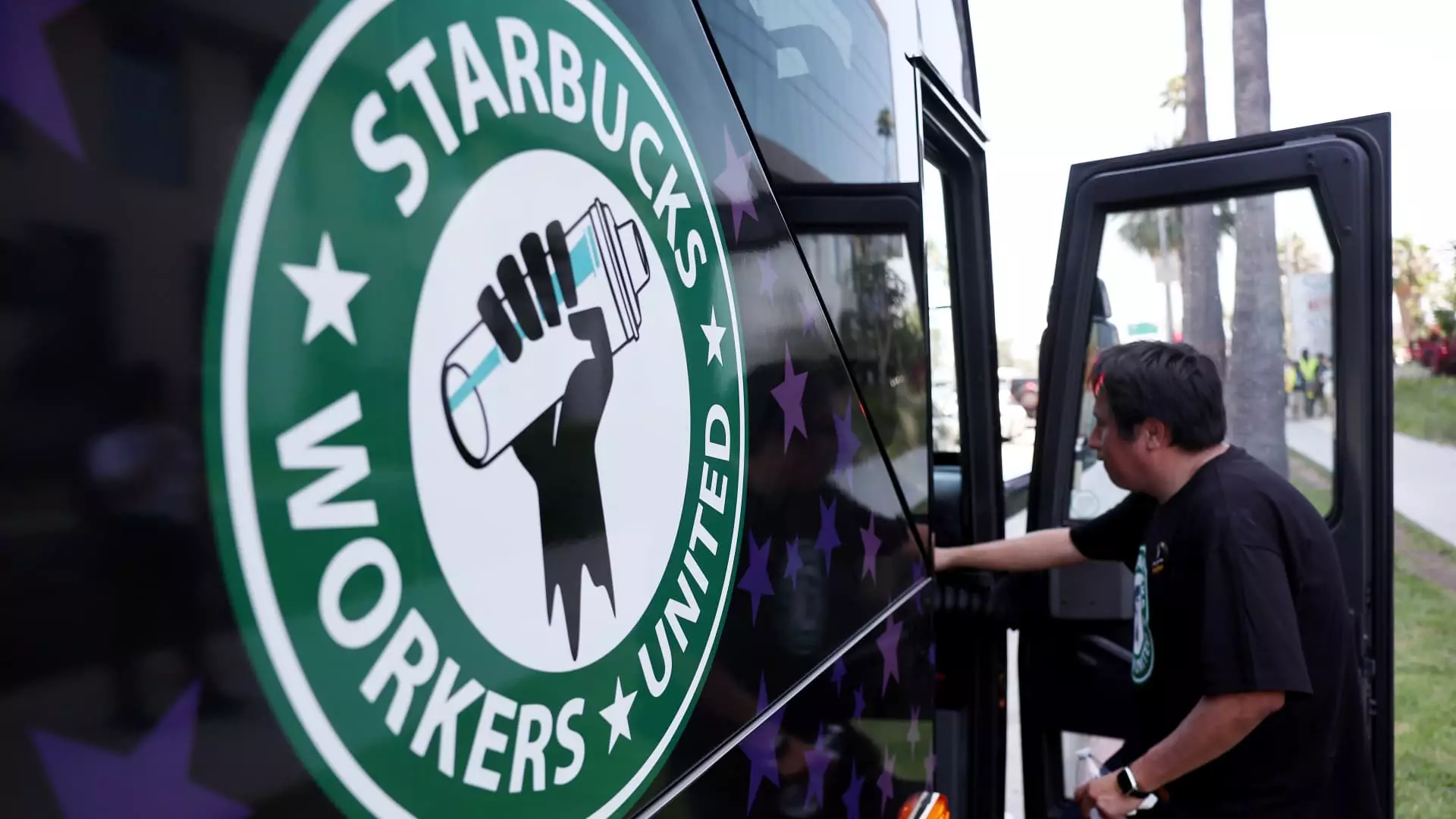The ongoing disputes between Starbucks Workers United and the coffee giant Starbucks reflect a broader trend in labor relations across the United States. With a staggering 98% of unionized baristas voting to authorize a strike, the tension is palpable. This unprecedented step indicates not only the dissatisfaction among workers but also a significant moment in the labor movement, as a growing number of employees demand better working conditions and equitable pay. The situation underscores the critical role unions play in advocating for their members’ rights and welfare in an environment increasingly characterized by corporate resistance.
Bargaining sessions between Workers United and Starbucks have been extensive, with the parties reportedly investing hundreds of hours in discussions throughout the year. Despite these efforts, the union claims that substantial issues remain unresolved, particularly concerning economic packages that would adequately address wages and benefits. This points to a broader issue in labor negotiations—often, even with seemingly constructive dialogues, the central concerns of workers remain unaddressed. The union’s discontent is further intensified by numerous unresolved unfair labor practice cases, suggesting a significant gap between the aspirations of baristas and the responses from management.
From Starbucks’ viewpoint, the company asserts that it remains committed to reaching a final agreement and has engaged in what they describe as productive negotiations. This perspective, however, stands in stark contrast to the union’s claims. The company’s contention that it has reached meaningful agreements on key topics clashes with the union’s insistence that comprehensive solutions are lacking. This dichotomy illuminates the challenges inherent in labor negotiations, where each side perceives the progress—and setbacks—through a vastly different lens.
The backdrop of this labor dispute includes a tumultuous relationship between Starbucks and the union since the beginnings of the unionization wave, initiated in Buffalo three years ago. Starbucks has historically strived to resist unionization efforts, but increasing consumer support for labor movements has pressured the company to reassess its strategies. The recent appointment of CEO Brian Niccol has brought some promises of good faith bargaining, yet systemic challenges remain unresolved. The company’s move to double paid parental leave appears to be an effort to placate workers; however, concerns over a projected smaller annual pay increase loom large.
If a strike were to occur, the ramifications could be profound—not just for Starbucks and its workers, but for the labor movement as a whole. A successful strike could empower other workers in different sectors to voice their demands, heralding a new era of labor activism. Conversely, tensions could escalate, making negotiations even more difficult and potentially alienating consumers who have come to expect a certain standard of service and worker treatment from the global coffee brand. The unfolding narrative is one that will be closely watched, as it represents a microcosm of the current labor struggle in America.

